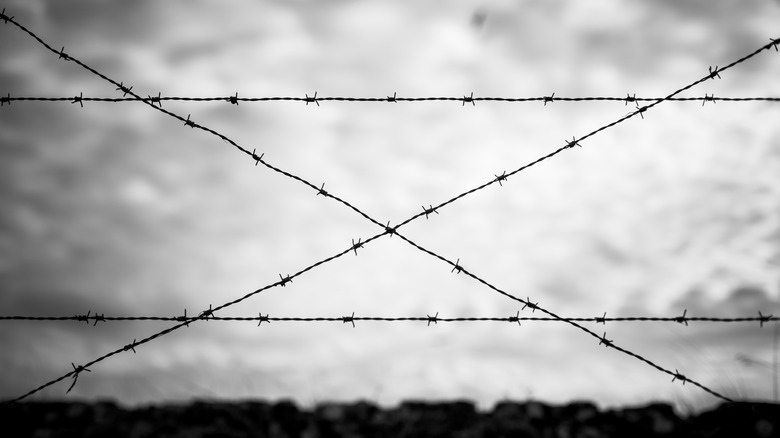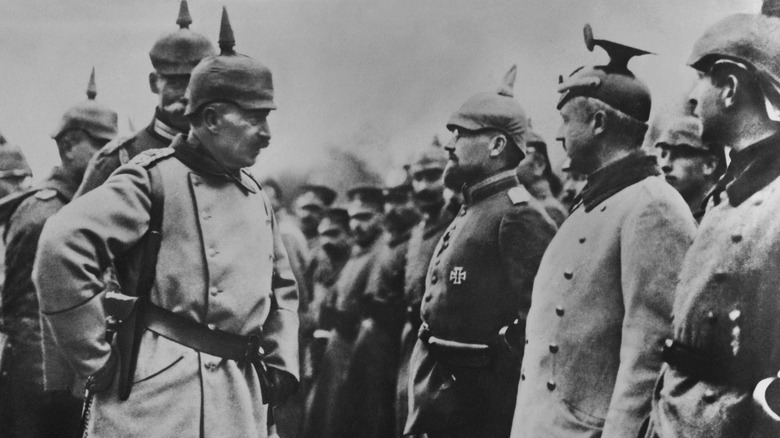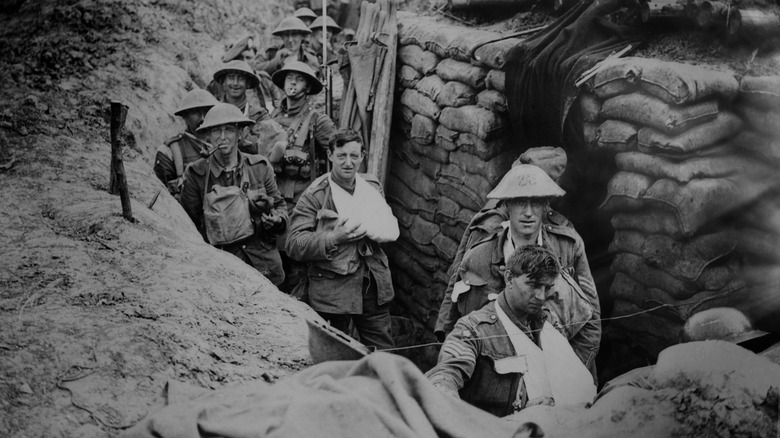Meet The British Soldier Who Was Freed But Then Returned To A Prisoner Of War Camp
British Army Captain Robert Campbell was a loving son. When he received word his mother was dying of cancer, he wanted what any dutiful son would want. He wanted to see her. Except, it wasn't that easy. Campbell wasn't at liberty to just get up and go. He was a prisoner of war back in 1916, being held by the Germans (via All That's Interesting). The remarkable story of the lengths he went to in order to see his mother on her deathbed is only dwarfed by the unthinkable thing he did right after.
Historian Richard van Emden came across the story while doing research for a 2013 book titled "Meeting the Enemy: The Human Face of the Great War" (via the BBC). At the time Campbell learned his mother Louise was dying, he was just 29 and being held in a camp in Germany after being captured in France in August of 1914, according to the BBC.
Campbell decided to write a letter to Kaiser Wilhelm II, who was the last German Emperor and the commander in chief of the German Armed Forces, according to All That's Interesting. He begged to see his mother, who didn't have long left to live, but wasn't expecting to receive a response. When it came, and the answer was yes, Campbell was surprised, to say the least; compassion shown to prisoners isn't exactly a wartime norm.
One last visit and a shocking surprise
Kaiser Wilhelm II (above, inspecting his troops) granted the unusual request, but he did so on one condition: Captain Robert Campbell could leave to visit his dying mother, but would need to return to the camp after the trip. Captain Campbell promised to do so, and after spending a week with his mother in England he went back to the prisoner of war camp, just as he said he would (via All That's Interesting). His return was something no one expected, not even the Kaiser.
Historian Richard van Emden told the BBC that Campbell would have felt he needed to honor the promise he made to the Kaiser, both for himself and other officers being held as POWs. Van Emden went on the say if Campbell didn't return, others might never have been afforded the same kindness.
According to the BBC, Campbell's treatment was not repeated. No other British prisoners of war were given compassionate leave. Campbell's mother, Louise, died in 1917, a few months after Campbell returned to his captors.
A daring escape
While Captain Robert Campbell was truly a man of his word and a dutiful son, he was also someone who wanted his freedom, badly. After returning to the POW camp, he set about trying to get out again, this time by escaping. Campbell and other prisoners spent nine months digging an escape route from their prison (via the BBC). They escaped, only to captured near the border with the Netherlands and sent back to a POW camp. Campbell stayed there until 1918, when World War I ended. According to historian Richard van Emden (via the BBC), Campbell would have felt honor-bound to keep his promise, but also felt a duty to attempt to escape.
After gaining his freedom. Captain Campbell went back to Britain and the military. He retired from the service in 1925, but rejoined in 1939 with the outbreak of World War II. He survived that war as well, according to the Daily Mail, and died in July of 1966 at the age of 81.


